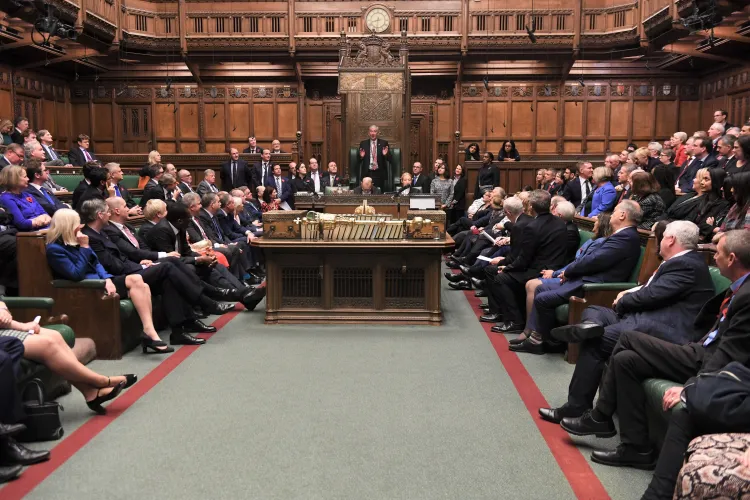Has the Assisted Dying Bill Cleared the UK Commons and Moved to the House of Lords?

Synopsis
Key Takeaways
- The UK House of Commons has passed the assisted dying bill.
- The bill allows terminally ill adults to choose to end their lives.
- Safeguards are in place to ensure voluntary decisions.
- The bill will now be reviewed by the House of Lords.
- This legislation could signify a major shift in UK policy.
London, June 20 (NationPress) The assisted dying bill received approval from the UK House of Commons during a third reading vote on Friday, representing a crucial advancement toward the legalization of assisted dying for adults facing terminal illnesses in England and Wales.
Members of Parliament voted 314 to 291 in support of the Terminally Ill Adults (End of Life) Bill. This margin was notably narrower than the 55-vote majority achieved during the bill's second reading in November.
Introduced by Labour MP Kim Leadbeater, the bill aims to permit mentally competent adults diagnosed with terminal illnesses and expected to pass away within six months to legally opt for ending their lives.
To protect individuals, the bill includes safeguards ensuring that any decision made is informed, voluntary, and free from coercion, according to a report by Xinhua news agency. Since its inception, the bill has faced extensive review and amendments. Although it enjoys considerable support among lawmakers, it is being presented as a private member's bill rather than through government endorsement.
The legislation is now set to be reviewed by the House of Lords, the unelected upper chamber of Parliament, for further discussion and examination.
If enacted, this law could represent one of the most significant changes in UK social policy since the partial legalization of abortion in 1967.
Supporters of the bill celebrated the vote as a movement towards dignity and self-determination for terminally ill patients, while detractors expressed concerns about potential dangers to vulnerable populations.
After passing its initial stage in the Commons in November 2024, the bill will enter a detailed phase of scrutiny and additional voting in both Houses of Parliament before it can become law.
At that time, Andrew Copson, Chief Executive of Humanists UK, noted that assisted dying “is already happening” in the UK, with some individuals traveling to Switzerland for the procedure, while others face distressing situations that lead them to take their own lives.
Opponents, including the UK-based advocacy group Care Not Killing, argue that the focus should shift towards enhancing palliative and social care systems. Critics have raised alarms that the bill could disproportionately impact vulnerable demographics, including ethnic minorities, those from low-income backgrounds, or individuals with disabilities.
“Our current laws safeguard vulnerable individuals and do not require modification. Instead, we must emphasize providing top-tier palliative care to those in need,” stated Gordon Macdonald, Chief Executive of Care Not Killing.










